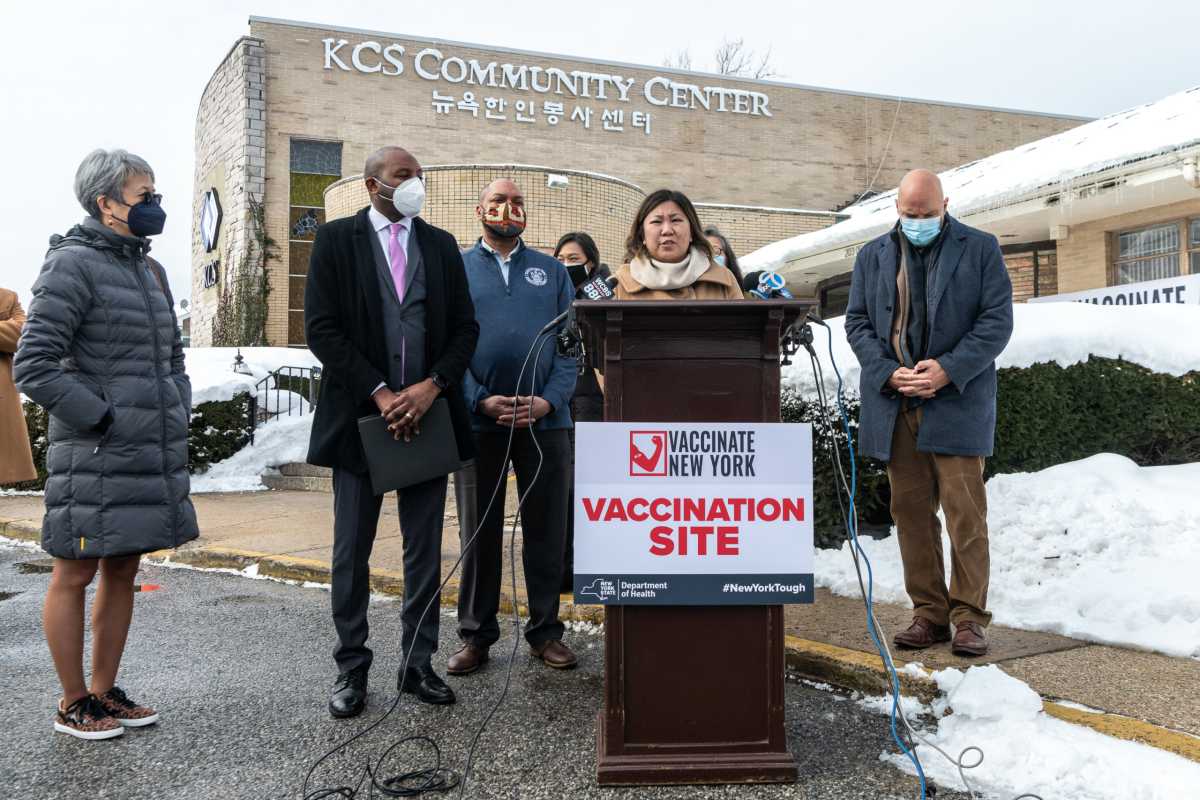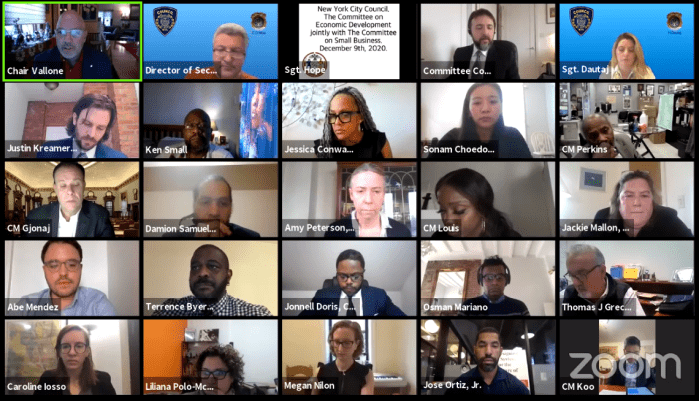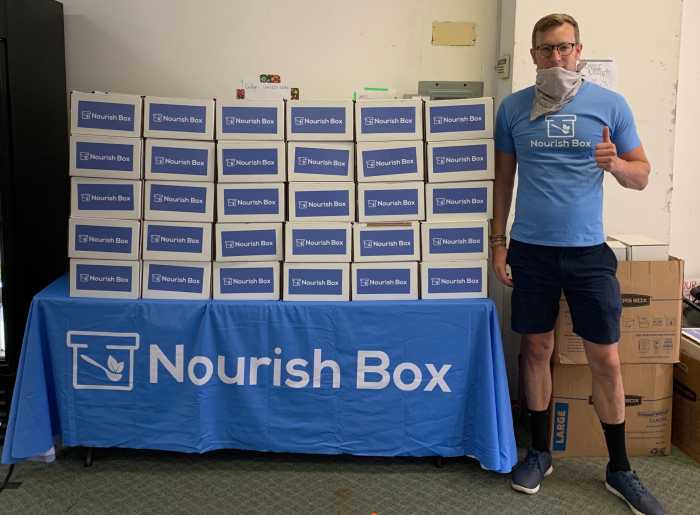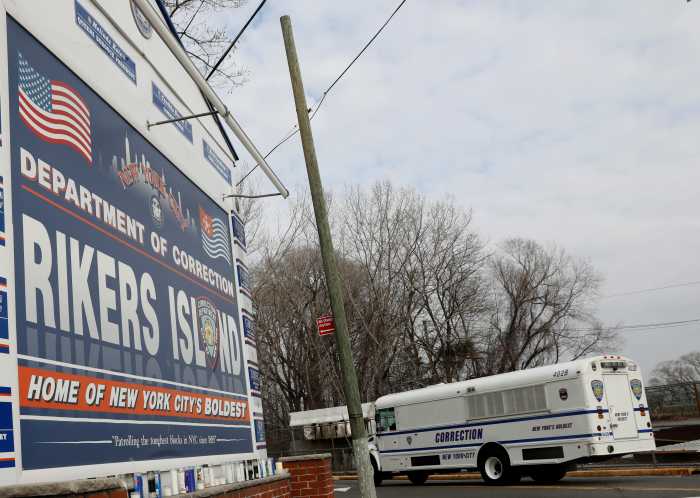Since the beginning of the COVID-19 crisis, mothers — especially mothers of color — have been forced to leave the workforce in droves in order to meet the unprecedented demands of caregiving, remote schooling and housework during the pandemic. Now, a Queens lawmaker is introducing a bold and sweeping legislation to revitalize and restore mothers in the workforce.
Congresswoman Grace Meng on Tuesday, Feb. 16, announced the Marshall Plan for Moms (H.Res 121) that recognizes these challenges and puts forward a framework of numerous provisions that aim to help moms return to the workforce. Its goal is to help mothers resume and advance their careers, and stop losing out on wages that are critical to their family’s economic security.
“Moms throughout America are screaming out for help,” said Meng, a mother of two young boys. “Moms — especially, moms of color — have been pushed to the brink of economic, social and emotional collapse due to this pandemic. Moms were always fighting an uphill battle against gender norms and racial and gender pay equity — and like so many other issues, the pandemic has only exacerbated existing injustices and inequalities. The unprecedented burdens of child care, remote learning — on top of social isolation — have strained the mental and emotional health of mothers.”
The Marshall Plan for Moms — named after the Marshall Plan that provided assistance to Europe after World War II — calls for transformational structural change, Meng said. It is a blueprint to make sure moms have a fighting chance, and that they are protected against any future economic calamities.
“It is time that we recognize the struggles and sacrifices that mothers have made and do all we can to rebuild their presence in the labor force so that they can provide for their families, and climb the ranks that lead to shattering more glass ceilings,” Meng said.
The Marshall Plan for Moms calls for robust paid leave; saving the child care industry with a vision toward universal child care and early learning; investing in the education system, including broadband connections; strengthening child poverty tools such as a child tax credit and earned income tax credit; expanding unemployment insurance benefits; strong Supplemental Nutrition Assistance Program (SNAP) benefits; a federal minimum wage increase to $15 an hour; and mental health support for moms.
At the beginning of 2020, even in the face of continued gender and racial wage gaps, women made up the majority of the workforce for the first time in almost a decade. A year later, women have lost over 5.4 million net jobs and account for 55 percent of overall net job loss since the start of the coronavirus outbreak. Today, there are over 2 million fewer women – 1 million of whom are mothers – in the labor force than there were before the pandemic. COVID-19 has triggered a financial and emotional calamity for America’s moms, who are shouldering the majority of child care, domestic work and remote school responsibilities. Moms of color and single moms are among the hardest hit.
The Marshall Plan for Moms is endorsed by Girls Who Code, National Partnership for Women and Families, MomsRising, National Women’s Law Center, National Domestic Workers Alliance, National Asian Pacific American Women’s Forum and American Association of University Women.
Reshman Saujani, founder of Girls Who Code, said the national crisis is disproportionately affecting women and, specifically, mothers. Prior to the pandemic, Saujani said, women made up half of the workforce. Now, there are newly unemployed moms for every one dad became unemployed during the pandemic.
“We need our government to provide relief to working moms now. Congresswoman Grace Meng has stepped up to the moment and introduced the Marshall Plan for Moms, a resolution that details a plan to get women back to work, not just in a few decades, but immediately,” Saujani said. “This is leadership. Now is not the time to go small, and Congresswoman Meng gets that. This bold action sends a signal that we are investing in women during this critical time, and I encourage Congress to support this resolution immediately.”
Sung Yeon Chimorrow, executive director of the National Asian Pacific American Women’s Forum (NAPAWF), said that during the pandemic, many Asian American and Pacific Islander (AAPI) mothers are forced to put their own and their family’s health at risk to earn a living — all for a fraction of what their male counterparts are paid.
“At the same time, the massive burden of childcare and remote learning has led many women to stop working or looking for work,” Chimorrow said. “The pandemic has only intensified the burden AAPI mothers carry in a system that has always left us to fend for ourselves. Comprehensive pandemic relief that addresses the urgent needs of mothers, like what is outlined in Congresswoman Meng’s Marshall Plan for Moms, is critical to our economic recovery and the well-being of our families.”
Meng’s measure, which can be viewed here, includes 25 co-sponsors and has been referred to several House committees where it is awaiting further action. These include the Education and Labor Committee, Agriculture Committee, Ways and Means Committee and Energy and Commerce Committee.




































